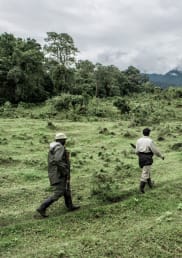Collusion or collision? The war on drugs in the Philippines
This article explores why there is continued public support for the anti-drug war in the Philippines despite its failures, particularly from among those who are often victimised by violence.
This article, which appears in the special issue of La Revista Estudios Socio-Juridicos (The Socio-Legal Studies Journal) published by Universidad del Rosario in Colombia, takes on an economic sociology approach to the illegal drugs problem and trains the spotlight on the threats to embedded social networks posed by this deadly enterprise.
Using quantitative and qualitative evidence and case studies from Metro Manila and the Bangsamoro Autonomous Region in Muslim Mindanao (BARMM) – specifically Marawi City in Lanao del Sur and Datu Saudi Ampatuan in Maguindanao – the study shows how collusion and collision are alternate realities and means of adapting to an illicit enterprise bound to many social and economic arrangements, including those brought by violent extremism.
Some of the quantitative basis for the analysis is based on eight years’ worth of data on drug-related violent incidents in the BARMM provided by Conflict Alert, our sub-national conflict monitoring system that tracks the incidence, causes and human costs of violent conflict in the Philippines.
The latest special issue of La Revista Estudios Socio-Juridicos on illicit economies and mobilisation is focused on understanding the forgotten world of production – of the producing countries and countries that are part of that path between production and consumption – and the consumption of illicit drugs itself.






